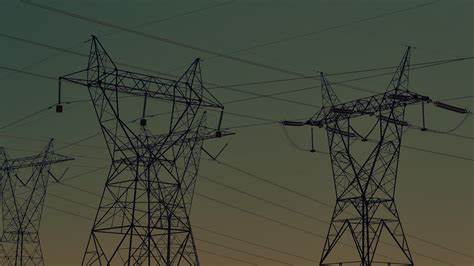Oredola Adeola
On Sunday, January 4, 2024, Nigeria’s national power grid collapsed for the first time in 2024, plunging the country into darkness with two significant power system failures: a 59.9MW partial collapse at 11:21am and a complete blackout at 1pm, leading to a nationwide energy crisis and causing economic setbacks.
The Transmission Company of Nigeria, TCN, in a statement by Ndidi Mbah, the company’s General Manager, Public Affairs in a statement on Sunday confirmed that the grid experienced a partial disturbance at about 11:21 Hours on Saturday, with Ibom power islanded, feeding Eket, Ekim, Itu & Uyo transmission substations, during the period of partial disturbance.
Meanwhile, power was restored to the grid at about a few minutes after 1 pm, to 174MW and further rose to 776.2MW and 1,051.4MW around 2 pm and 6 pm, respectively.
Mbah in a statement obtained by Advisors Reports on Sunday, confirming the nationwide outages, disclosed that TCN initiated immediate restoration of the affected part of the grid, and presently, the grid is fully restored.
She noted that prior to the incident, total generation on the grid was 3,901.25 MW at 08:00 Hours, a little over three hours before the time of partial collapse.
She said, “It is important to note that low power generation has persisted since January 2024, to date, exacerbating daily due to the lingering gas constraint.
“According to the National Control Center (NCC), the Internet of Things (IoT) revealed that just before the partial disturbance, which occurred at 11:21Hrs on Saturday, Sapele Steam & Egbin Substations lost a total of 29.32MW & 343.84MW at 11:20:14Hrs & 11:20:17Hrs respectively, totaling 373.16MW.
“This, combined with the current low power generation due to gas constraints, caused the imbalance leading to the partial system disturbance.
“Gas constraints continue to impact grid flexibility and stability. Ensuring sufficient gas supply to power generating stations is crucial for grid stability as sufficient generation allows for better grid management in the event of sudden generation losses like this,” Mbah said.
The General Manager, Public Affairs of TCN, therefore confirmed that the company will investigate the cause of tripping of Sapele Steam and Egbin power generating units.
Advisors Reports gathered that the two separate system collapses that occurred in Nigeria led to a nationwide blackout and affected several parts of the country, including Kaduna, Sokoto, Zamfara, and Kebbi states.
Abdulazeez Abdullahi, Head of Corporate Communication, Kaduna Electric following the development said, “Power supply shall be restored to our customers as soon as we receive the same at load centres across our franchise. We sincerely apologize for the inconvenience,”
The Abuja Electricity Distribution Plc (AEDC) in a statement to its customers confirmed that the system failure from the national grid led to a power outage within its network areas.
“Rest assured that we are working with the relevant stakeholders to restore power as soon as the grid is stabilised. We appeal for your patience,” the company stated.
Between May 2023 and December 2023, Nigerians experienced three major nationwide system collapses which occurred on September 14, 19, and December 11, due to system collapses of the national power grid.
The TCN allocated a total of 2,713MW to the 11 Distribution Companies (DisCos) as of the time of this report on Monday, with Abuja Disco receiving the highest allocation of 418MW and Yola Disco receiving the lowest allocation of 77MW.
Ikeja Disco was allocated 413MW, Eko Disco – 351MW, and Ibadan Disco- 327MW, Benin Disco- 223MW, Port Harcourt Disco, 194MW, Enugu Disco: 196MW, Kaduna Disco- 177MW, Jos Disco- 154MW, and Kano Disco received 183MW.






